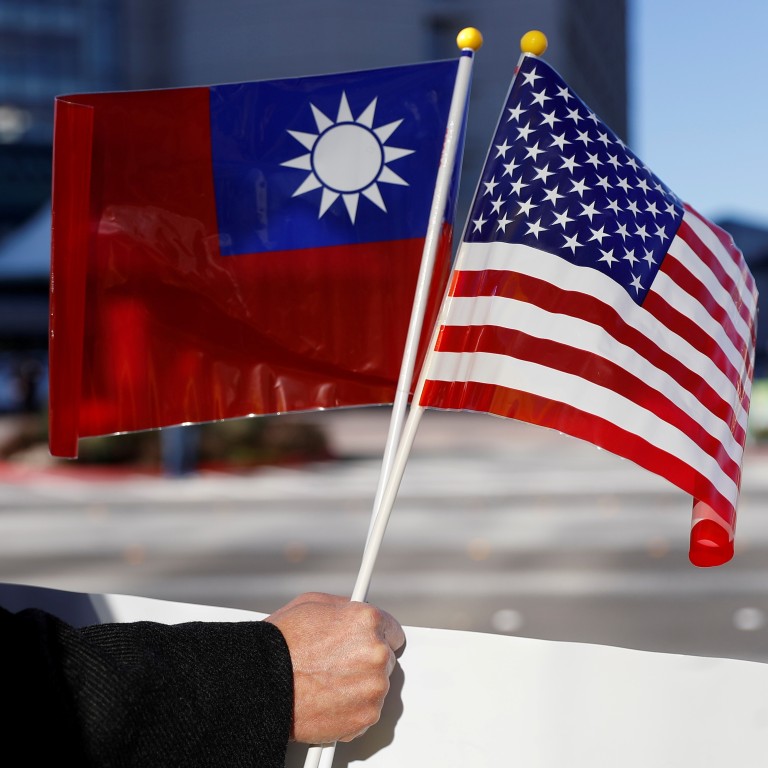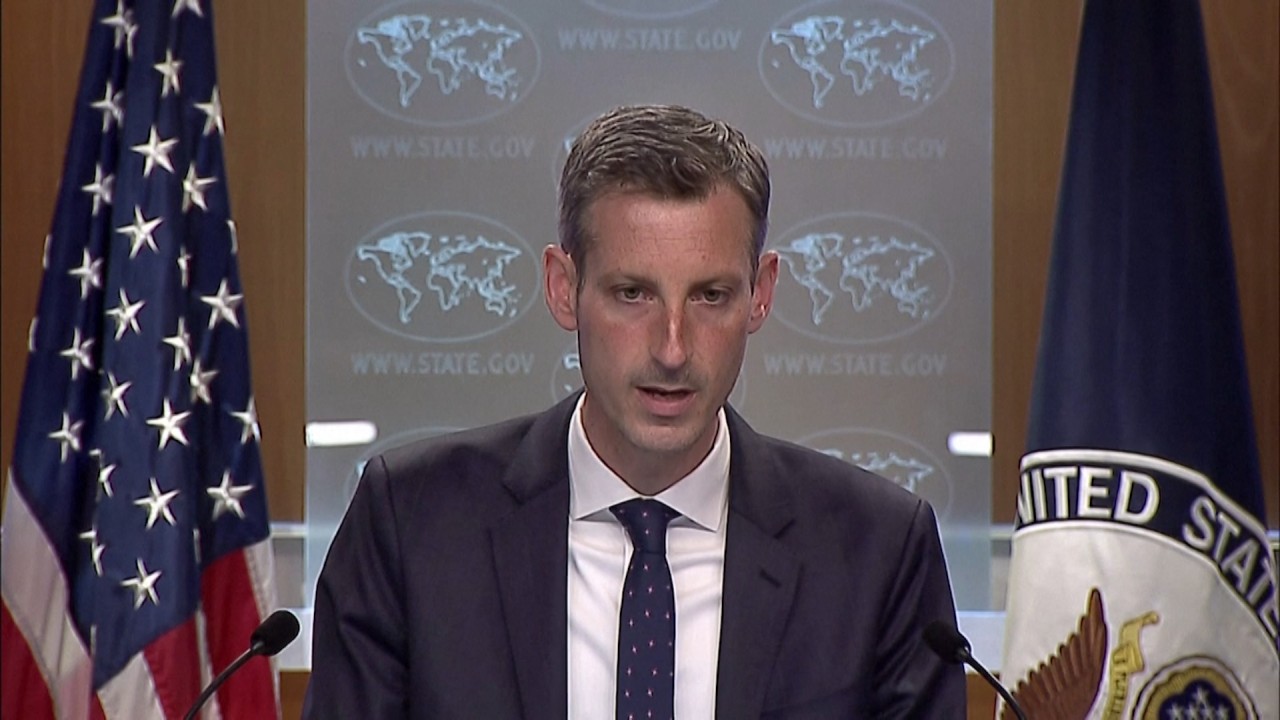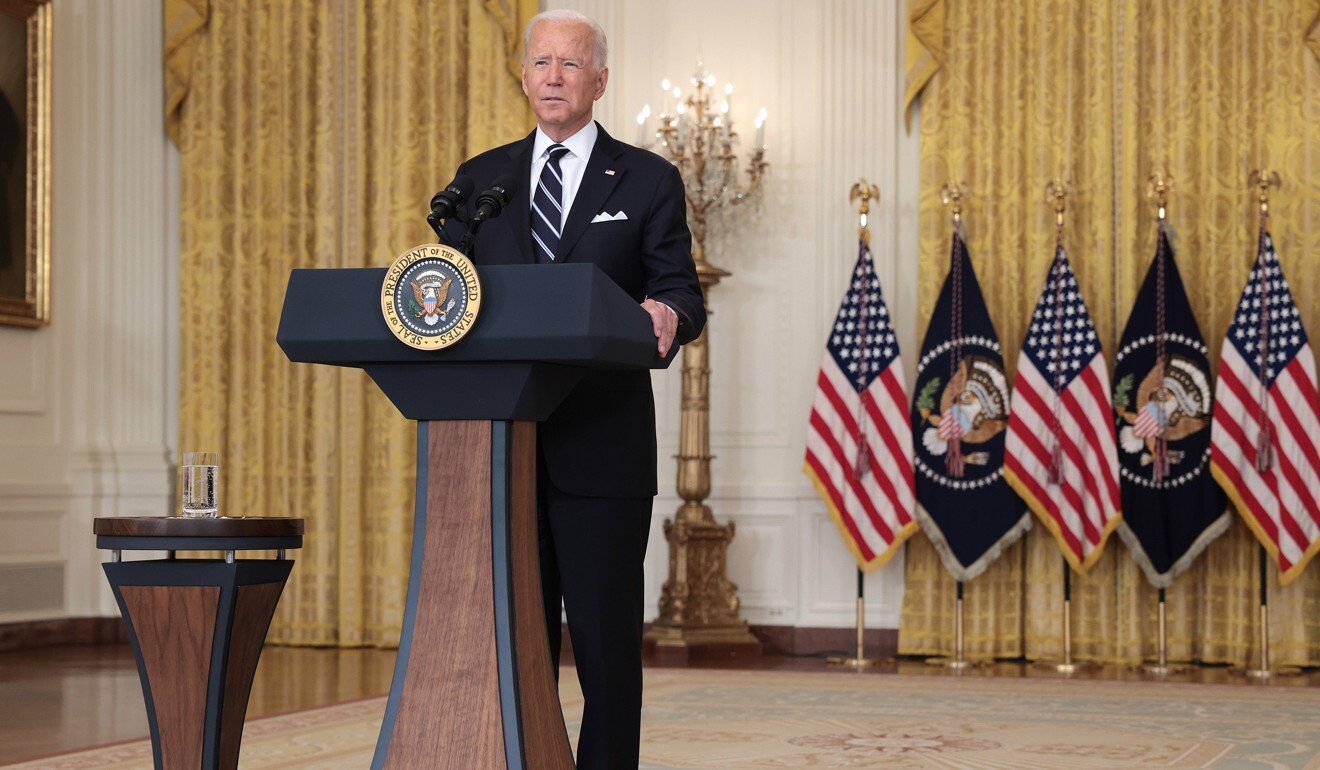
US position on Taiwan unchanged despite Joe Biden comment on defending the island, officials say
- In an interview about Afghanistan, the president appeared to lump Taiwan with Japan, South Korea and Nato, saying the US would respond to an invasion
- Washington has long followed a policy of ‘strategic ambiguity’ on whether it would intervene militarily in the event of a Chinese attack
The US has long refrained from explicitly stating whether it would intervene militarily if China sought to take Taiwan by force – a policy of deliberate ambiguity that proponents say deters military action by Beijing while preserving Washington’s relations on both sides of the strait.
But under questioning from Stephanopoulos about whether Taiwan could count on the US after its chaotic withdrawal from Afghanistan, Biden’s response appeared unambiguous.
White House rebuts claims that Afghanistan withdrawal should worry Taiwan
“We made a sacred commitment to Article Five that if in fact anyone were to invade or take action against our Nato allies, we would respond,” he said in the interview, which was broadcast on Thursday. “Same with Japan, same with South Korea, same with Taiwan.”
The North Atlantic Treaty Organisation’s Article Five dictates that each member nation should consider an attack against any other alliance member as an attack against themselves.
The US ended its diplomatic relations with Taiwan in 1979 when it transferred recognition to mainland China and no such formal US-Taiwan military pact exists. The US, however, is required by law to ensure that Taiwan is able to defend itself.
Asked about Biden’s comments, a State Department representative said: “Our policy with respect to Taiwan has not changed.”
“The US defence relationship with Taiwan is guided by the Taiwan Relations Act (TRA), as it has been for the past 40 years, and is based on an assessment of Taiwan’s defence needs and the threat posed by the PRC,” said the official, referring to legislation that codifies relations between Washington and Taipei.

01:14
‘Our commitment to Taiwan is rock solid’, US says about mainland China’s intimidation in the region
And asked on Thursday if the administration would consider abandoning the strategic-ambiguity policy, State Department spokesman Ned Price gave no indication that the administration planned to escalate its support of Taiwan beyond existing protocols.
“We will continue to support a peaceful resolution of cross-strait relations consistent with the wishes and best interests of the Taiwan people,” Price said at a regular briefing.
Bonnie Glaser, director of the Asia programme at the German Marshall Fund of the United States, said Biden’s comments had “conflated” US policies toward its treaty allies and toward Taiwan. “But he was correct in saying that the US has upheld its commitments,” she added. “That was the main point. He was just a bit sloppy in his answer.”
Beijing prepares to build airport on reclaimed land near Taiwan
After an erroneous tweet this week by Senator John Cornyn, Republican of Texas, saying the US had 30,000 troops stationed in Taiwan, the editor-in-chief of the Global Times newspaper suggested it was a deliberate attempt to test Beijing’s resolve.

Speaking on Thursday, Price called on Beijing to cease its “military, diplomatic, economic pressure against Taiwan, and instead to engage in meaningful dialogue”.
Beijing views Taiwan as a renegade province to be ultimately reunited with the mainland – if necessary by force.
Analysts remain divided about when or whether Beijing would defy pressure from Western countries with an attack on Taiwan. A top US admiral warned Congress in March that Beijing could take action against the island “in the next six years”.

